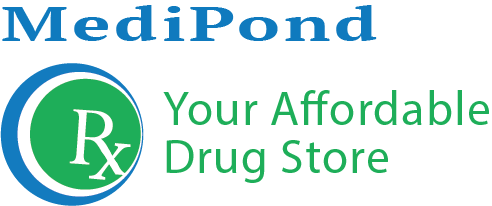promethazine HCl 25 MG Oral Tablet
Common Brand Name(s): Phenergan
SKU
promethazine-HCl-25-MG-Oral-Tablet
See also Warning section. Promethazine is used to prevent and treat nausea and vomiting related to certain conditions (such as before/after surgery, motion sickness). It is also used to treat allergy symptoms such as rash, itching, and runny nose. It may be used to help you feel sleepy/relaxed before and after surgery or to help certain opioid pain relievers (such as meperidine) work better. It may also be used for a short time to treat a runny nose due to the common cold. Promethazine is an antihistamine and works by blocking a certain natural substance (histamine) that your body makes during an allergic reaction. Its other effects (such as anti-nausea, calming, pain relief) may work by affecting other natural substances (such as acetylcholine) and by acting directly on certain parts of the brain. Cough-and-cold products have not been shown to be safe or effective in children younger than 6 years. Therefore, do not use this product to treat cold symptoms in children younger than 6 years unless specifically directed by the doctor. Some products (such as long-acting tablets/capsules) are not recommended for use in children younger than 12 years. Ask your doctor or pharmacist for more details about using your product safely. These products do not cure or shorten the length of the common cold and may cause serious side effects. To decrease the risk for serious side effects, carefully follow all dosage directions. Do not give other cough-and-cold medication that might contain the same or similar ingredients (see also Drug Interactions section). Ask the doctor or pharmacist about other ways to relieve cough and cold symptoms (such as drinking enough fluids, using a humidifier or saline nose drops/spray).
Drowsiness, dizziness, constipation, blurred vision, or dry mouth may occur. If any of these effects persist or worsen, tell your doctor. To relieve dry mouth, suck (sugarless) hard candy or ice chips, chew (sugarless) gum, drink water, or use a saliva substitute. Remember that your doctor has prescribed this medication because he or she has judged that the benefit to you is greater than the risk of side effects. Many people using this medication do not have serious side effects. Tell your doctor right away if you have any serious side effects, including: fainting, slow heartbeat, mental/mood changes (such as hallucinations, nervousness, irritability, restlessness, confusion), unusual/uncontrolled movements (such as fixed upward stare, neck twisting, tongue movements), shaking (tremor), difficulty urinating, easy bleeding/bruising, signs of infection (such as fever, persistent sore throat), severe stomach/abdominal pain, persistent nausea/vomiting, yellowing eyes/skin. Get medical help right away if you have any very serious side effects, including: slow/shallow breathing, seizures. This medication may rarely cause a very serious condition called neuroleptic malignant syndrome (NMS). Get medical help right away if you have any of the following symptoms: fever, muscle stiffness/pain/tenderness/weakness, severe tiredness, severe confusion, sweating, fast/irregular heartbeat, dark urine, signs of kidney problems (such as change in the amount of urine). A very serious allergic reaction to this drug is rare. However, get medical help right away if you notice any symptoms of a serious allergic reaction, including: rash, itching/swelling (especially of the face/tongue/throat), severe dizziness, trouble breathing. This is not a complete list of possible side effects. If you notice other effects not listed above, contact your doctor or pharmacist. In the US - Call your doctor for medical advice about side effects. You may report side effects to FDA at 1-800-FDA-1088 or at www.fda.gov/medwatch.
Write a Product Review


